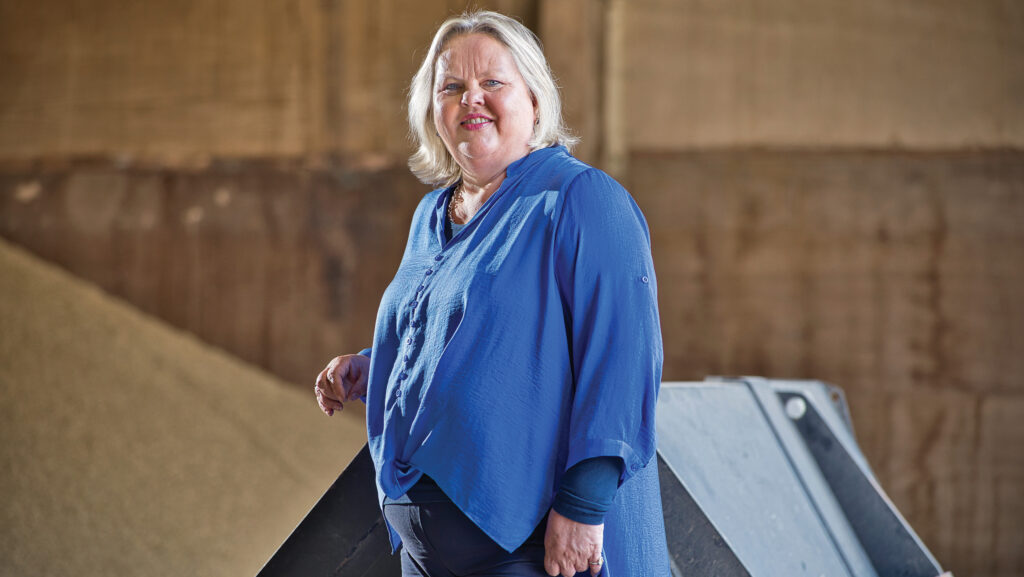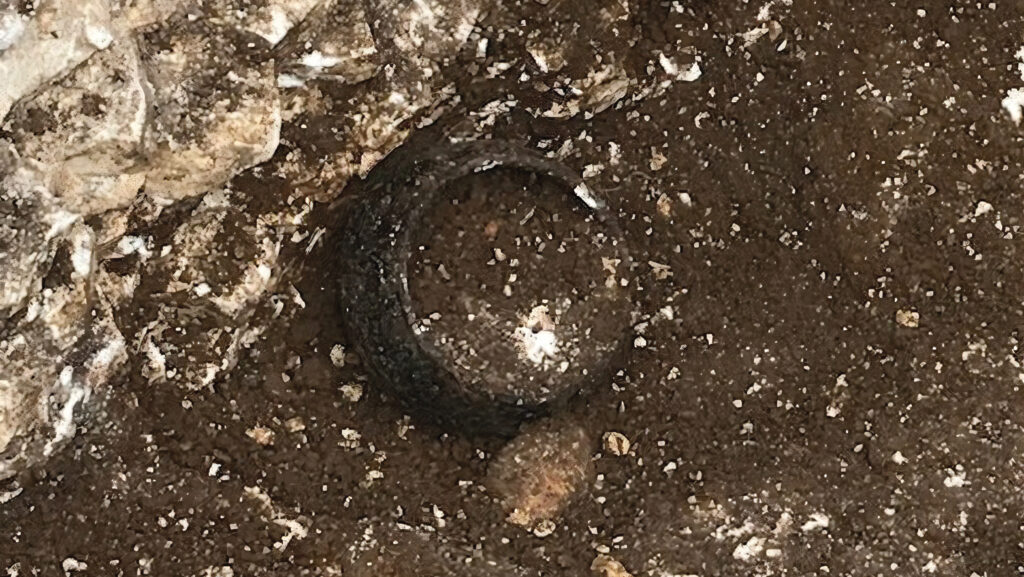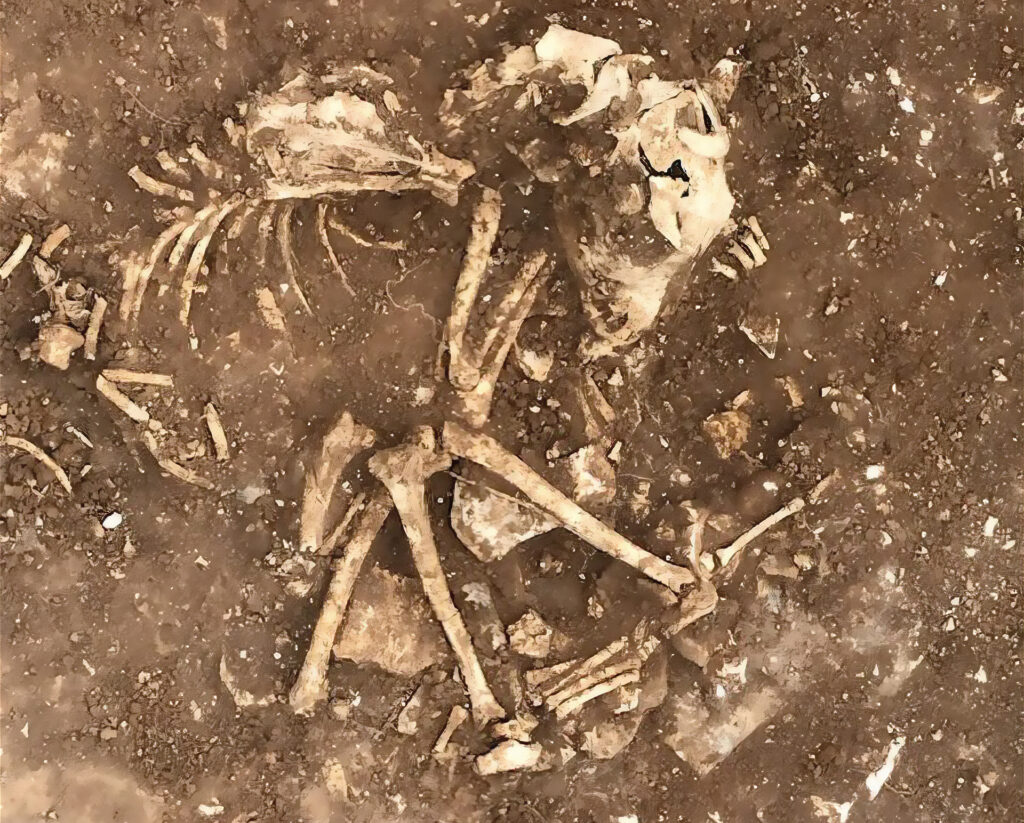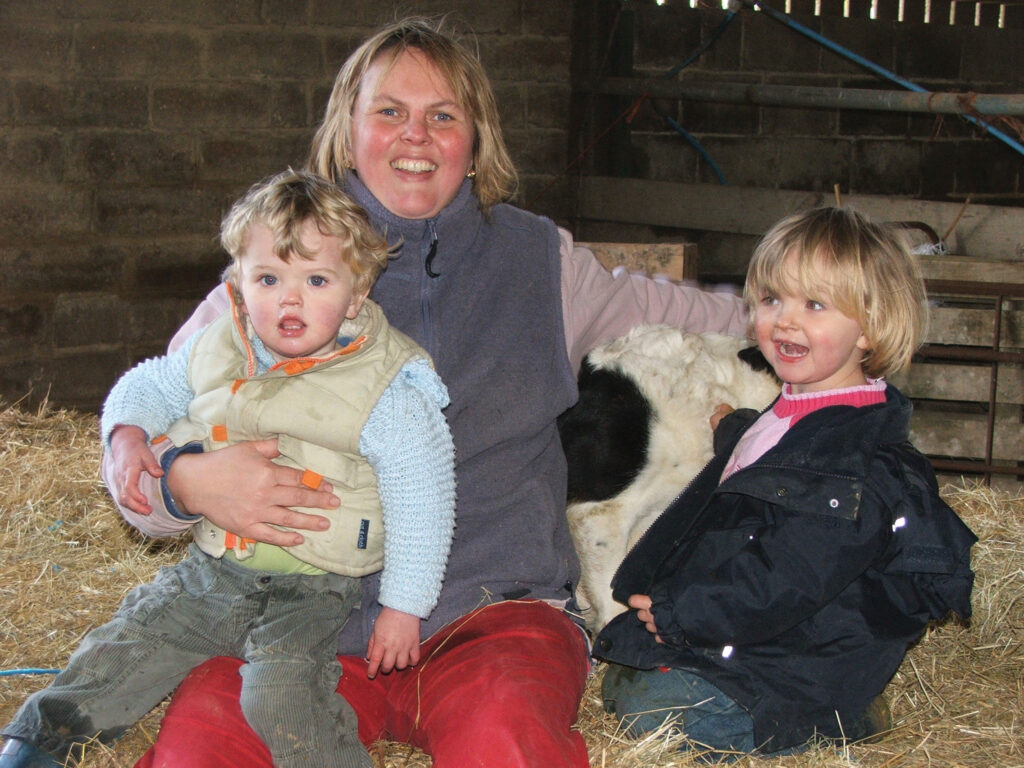Video: 90 and Counting – arable farmer Rebecca Hill, Dorset
 © Richard Stanton
© Richard Stanton Here at North West Farm, Dorset, we’re about seven miles from the Jurassic coastline and at the top of the farm we have an archaeological dig. That’s my favourite place on the farm.
Two thousand years ago there was upwards of 500 people living up there. Metal detectorists found some coins – the Durotriges coins, which can only be found in Dorset or south Wiltshire.
See more: 90 and Counting – livestock farmer Sharon Hammond
The coins would have been used for trade very much like today in that I need to sell my crop for the best price I can get to be able to continue next year.
Bournemouth University has been doing the Durotriges Project, the “big dig”, for the past 15 years.
Hear more from Rebecca in the video below.
We grow spring barley for malting and have set up a little brewhouse called the Big Dig Brewery.
There’s evidence that they were brewing beer on the site 2,000 years ago, so the link becomes fascinating.
I’m hoping I’m going to live a few more years yet but my wish is that I am laid to rest up with the Romans and the Iron Age people enjoying life and maybe having a beer or two.

A black-burnished ware pot from the Iron Age found at an archaeological dig at the top of the farm © Rebecca Hill

Grain stores were often repurposed for burials; the skeleton is thought to be that of a hunting dog © Rebecca Hill
On succession…
We’re a family farm of four generations near Blandford.
We farm 1,250 acres, of which 500 acres is owner occupied and the remaining is share farmed, and contract farmed, and FBTs, and all the myriad agreements you could possibly get.
We moved here in 1979 following the death of my great-grandfather, so we inherited the farm from him.
When I came back from college I was in charge of running the flock of 700 lowland sheep and rearing 150 calves.
Four or five years ago I gave up the sheep – they’d bashed my knees one too many times!
My father was an inspirational character, and he passed away when he was 54.
He still lives on, hopefully, through what I do. It was a really difficult time; his death was in the middle of harvest.
We need space to grieve, but in many ways continuing farming and having a purpose gets a lot of farmers through.

© Rebecca Hill
On prices…
Three or four years ago when wheat hit just under £300/t I didn’t have enough to sell.
And in 2012 we didn’t actually have tonnage in the barn to get those high prices and that was really hard.
You have to understand your figures and the frustrations of weather.
On subsidies…
We all want to farm without subsidy ideally. All the transitional stuff that we have been through has enabled a little bit of security.
We plant trees, we have had wild bird cover for the past 30 years, all our hedges are in good repair so it’s frustrating when we’re told we’re not doing enough.
Farming is important to the UK and to Britain because we are we’re passionate about what we do.
It isn’t just about a business, it’s about a whole family, it’s about the generations over the years, it’s about being a custodian of something that hopefully will be there for the next 2,000 years.
